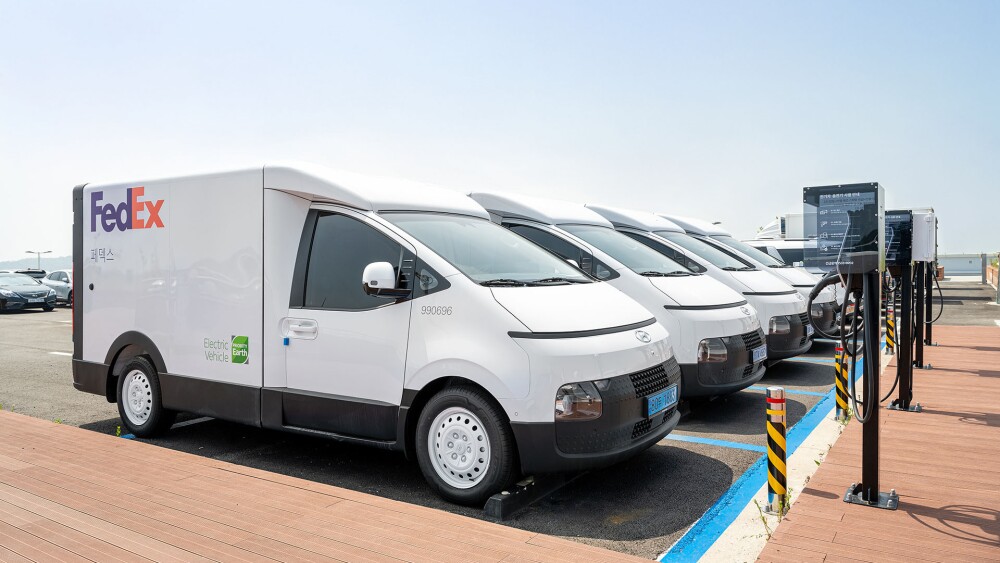Seoul, South Korea, July 22, 2025 — Federal Express Corporation, one of the world’s largest express transportation companies, has completed the first phase of its vehicle electrification in Korea. This marks an important step toward the company’s goal of an all-electric, zero-tailpipe emission pickup and delivery (PUD) fleet by 2040.
Following the introduction of its first six electric vehicles (EVs) in January 2025, FedEx expanded its EV fleet earlier this month by deploying an additional 13 Hyundai ST1 Electric Cargo Vans. These vans now operate in both commercial and residential areas in Gyeonggi Province including Gunpo, as well as in various districts in Seoul such as Gangnam, Jongno, Sangam, Seongdong, and Yongsan. The vehicles offer a 1-ton load capacity and estimated range of up to 317 kilometers on a full charge. Based on FedEx operational data, each EV is expected to avoid around 4.5 metric tons of tailpipe emissions per year, based on the average distance traveled on planned routes when compared to similar diesel-powered vans.
To support the expanded EV operations, FedEx has also enhanced its charging infrastructure, installing a total of twelve charging stations at two depots —eight at the FedEx Sangam Station and four at the FedEx Gimpo Station respectively.
“Electrifying our fleet is essential for reducing the environmental impact of our operations,” said Wonbin Park, managing director of FedEx Korea. “This expansion not only reduces carbon emissions, but also demonstrates our ongoing commitment to creating a more sustainable future for the communities we serve. We will continue to invest in smart, sustainable logistics solutions for a cleaner, more resilient future.”
To achieve the company’s goal of carbon neutral operations globally by 2040, FedEx continues to advance various sustainability initiatives beyond vehicle electrification, including fleet modernization, alternative fuels like sustainable aviation fuel (SAF), fuel conservation, energy-efficient facility design, and supporting scientific research into natural carbon capture methods that can remove excess carbon from the atmosphere. Through operational efficiency initiatives, primarily in air operations, FedEx achieved a 6.1% year-over-year reduction in direct (Scope 1) emissions from fiscal year 2023 to fiscal year 2024. Recently, FedEx entered into a one-year agreement to purchase more than three million gallons of blended SAF at Los Angeles International Airport (LAX) in the U.S., marking a milestone in its aviation sustainability efforts.
To empower our customers to deliver a more sustainable future, FedEx launched FedEx® Sustainability Insights, a cloud-based carbon emissions reporting tool that provides historical emissions data for shipments within the FedEx network. This tool helps customers manage their carbon impact and enhance the sustainability strategies of their businesses.
